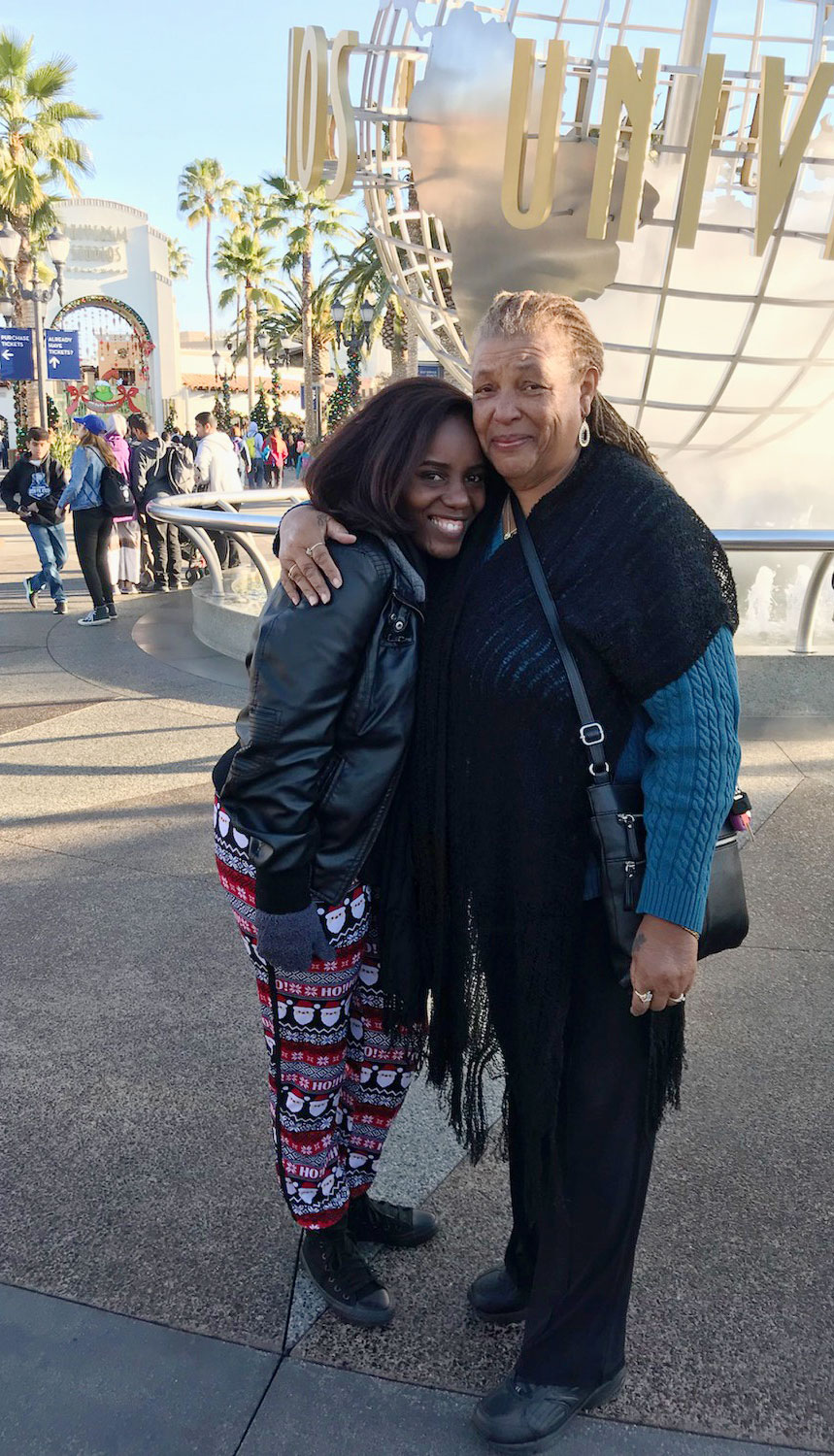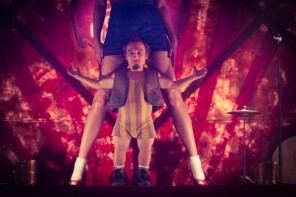Mercedes Russaw has always known she was adopted, and like most adopted kids, she longed to find out her history – the girl she was destined to become, not despite her circumstances, but in spite of them. She didn’t fully come to terms with her past until she joined the One Community Church in Plano seven years ago, and learned about its Adoption Ministry in 2016 from her mentor Tara.
Tara helped restore Mercedes’ faith in herself by reminding her she had a story to tell, and her dream to counsel adoptive youths didn’t need to wait; there were children in Collin County she could help, here and now.
“If I can be someone who influences a child to not harm themselves, or to believe they still have a purpose left in the world, that’s what I want to do,” Mercedes said.
Last April, Mercedes became a mentor to a 15-year-old in foster care, a girl who Mercedes intends to stand by through every stage of her life, the way she wishes someone had done for her. Still, she remembers the mentors she had growing up – college students who made her feel like she mattered.
Mercedes hopes to be the voice of reason and understanding for her mentee – someone who helps her foster care parents meet their daughter where she is now. That way, not only are her physical needs met, but also her emotional ones.
Around her mentee’s age, feelings of rejection and aloneness overwhelmed Mercedes. She felt she was missing a community of people like her, people she could relate to. At age two-and-a-half, Mercedes entered the foster care system in Los Angeles when her biological mother left her and her one-and-a-half year-old brother with a friend from church, and could not be reached.
In the years to come, her birth mom would go on to have seven more children, nine total. She would lose them all to the foster care system, her world dissolving in drugs, prostitution and a life full of regret. With an education ending at ninth grade, her birth mom struggled to make a steady income, to prove to be enough for her kids, and Mercedes was invited into a new family: Patricia and Merle Woods, who took in 150 kids in their time as foster care parents.

Patricia loved Mercedes, but she feared Mercedes walking in her biological mother’s footsteps. In an effort to keep her close and protect her, Patricia restricted where Mercedes could go, with whom she could hang out and left her feeling utterly trapped.
The tension built in their home, especially as Mercedes began questioning her past. She was struggling inside and didn’t feel like she could say anything to anyone. She turned to her love for singing, but also, occasionally, to self-harming.
“When you’re in foster care and adoption, you come to a place where you want to know where you came from – you just assume they didn’t want you. You deviated from the natural course of things, so it’s like, what did I do to make this happen?” she said.
Finally, she decided to leave home at age 18 and stay in a shelter in downtown San Diego. She was dealing with depression, and skipped school until she realized she was at risk of not graduating.
In that moment, she knew one thing: She wasn’t going to perpetuate the cycle. She started to wake up every morning at 4 to take the train to school until she graduated from high school.
“I had to grow up,” she admitted. “I had to see the world for what it was and figure out my place in it.”
Another commitment she made to herself was to never self-medicate like her biological parents had, no matter how depressed she grew. “If I’m wise, I’m not going to make the same decisions and think that I’m going to get a different result,” she said.
At 20, Mercedes had her son, who is now around the same age as her mentee. She reached out to Patricia about her biological mom, and ended up staying with her for three years, where she learned everything happens for a reason – including their separation. She never met her biological father, who is incarcerated.
“It’s tempting to get stuck in the past, but then you can’t appreciate how your past has made you ready for the present. You can’t appreciate how your past has equipped you to help someone else,” Mercedes said.
Her time with her biological mom was tough, knowing they couldn’t just pick up where they left off or make up for lost time. Standing face-to-face with her daughter, her biological mom couldn’t avoid her past. She relived the choices she had made that had dramatically altered their lives, and she struggled to forgive herself, to process how to move forward.
Mercedes admits they’re still trying to understand where they are now, and to appreciate that.
Taking a stroll down memory lane helped Mercedes piece together her past: her medical history, predispositions (like depression) and habits – everything that is a part of who she is.
Mercedes encourages asking questions and searching for the past, but not at the cost of sanity. Because in the end, it’s about finding closure and closure is about making peace with the past, about having the kind of perspective that says, ‘I want to know if I’m able to know, but I’m at peace if this is all I can know.’
“You don’t have to wait for someone to apologize to you to move on, just like you don’t have to wait to find your family to live a full life,” Mercedes said.
There’s also the possibility of opening a door that may be better left shut, Mercedes points out. Though Patricia was receptive to Mercedes’s search to find her birth parents, she didn’t want her daughter to get hurt.
“She never looked at me like this is my adoptive child; she looked at me like this is my daughter,” Mercedes said.
Now Patricia and Mercedes are in a place where they understand each other, and Mercedes is eager to get to know her outside of who she is as a mom. Last September, she visited San Diego to celebrate Patricia’s 75th birthday in a grand family gathering.
After growing up in San Diego, Mercedes lived in Los Angeles for five years. She took the train to Texas in 2009 – a two and a half day ride – and she hasn’t wanted to leave since. In 2013, she moved to Plano for the school district, and now works at an accounting firm.
She’s always been open with her son about her past, and a few years back, he told her, “Mom, we need to adopt.” Mercedes turned to him laughing, “We?”
He’d done his research and came prepared: “I want you to adopt a boy, and he needs to be 11 years old, and you don’t have to be married or have a big house to do it.”
It got Mercedes thinking; maybe she would adopt one day, when she was ready. But for now, she serves as a mentor and speaks with parents who are looking to adopt or foster, providing them with the insider’s perspective and the information to empower their decisions.
“A lot of people have the heart to do it, but they don’t know about the opportunity to do it,” she said.
Adoption and foster care sessions provide parents with a realistic view of the process, while also revealing their real intention for adopting. Adopting as a means of filling a void, or feeling fulfilled isn’t the right reason. A part of the process is also accepting that the child will want to know where he or she comes from, and to not take that as a personal attack, Mercedes says.
Mercedes helps parents understand that adoption is a sacrifice on both sides – for the parent who’s taking in the child, and the child who is learning to let go of the past and embrace this new life.
She said she made a choice not to be held back by her past, so she can empower others to do the same, including her mentee. Mercedes can help her simply by being someone who understands. “I know how you’re feeling. I’ve been where you are. Even though where you are now feels like that’s all there will ever be, it’s not. It’s going to change, and it’s going to get better,” she says, believing our circumstances are only proof of our strength.
The next foster care and adoption session called “Room at your Table” starts April 9. Email Trisha Weber for more information at oneby1@onechurchhome.org.
Last year, 248 children were removed from their homes in Collin County, according to the Child Protective Services’ Summary Report for the Texas Council of Child Welfare Boards. Out of the 217 children who exited the foster care system, 63 were adopted.





